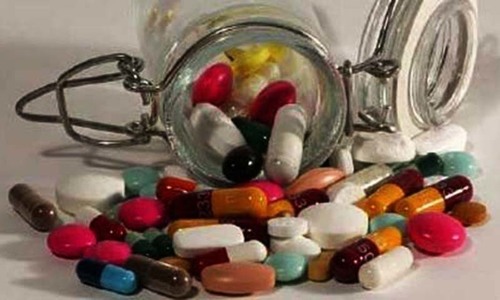ISLAMABAD: Taking notice of the sale of medicines at 10 times higher rates compared to that of reputed companies, the Ministry of National Health Services (NHS) has stopped the Drug Regulatory Authority of Pakistan (Drap) from enlisting medicines without fixation of their prices.
The decision has been taken in the light of a special audit conducted by the auditor general of Pakistan (AGP) regarding the mechanism of drug pricing which showed a number of anomalies. The AGP suggested a number of immediate steps to ensure that medicines were available to patients on affordable rates.
In April, the prices of medicines were increased by up to 400 per cent which triggered criticism across the country. Prime Minister Imran Khan took notice of the issue and directed that the prices should be reduced within 72 hours. The then minister National Health Services (NHS) Aamer Mehmood Kiani announced to reduce the prices but could not do so.
Decision taken by ministry after auditor general detected anomalies in drug pricing mechanism
The then secretary NHS requested the AGP to hold a special audit of Drap. Later, Special Assistant to Prime Minister Dr Zafar Mirza held negotiations with the pharmaceutical industry and said a maximum increase in medicine prices would be not over 75pc.
However, AGP’s audit report (available with Dawn) showed a number of anomalies in the prices such as medicines of same formula being sold at different rates.
It revealed that Drap had started enlistment of medicines without fixation of their prices due to which the drugs were sold at exorbitant rates under Health and Over the Counter (HOTC) products. Despite the fact that a number of products fall in the category of drugs they were sold as vitamins and nutrition due to which their prices were not fixed.
“Non-fixation of maximum retail prices (MRPs) of vitamins and other ingredients with monographs has led to the exorbitant price hike of HOTC products such as Black Moris (MRP Rs1990), Natural Factors Super Huial De Foi De Morue (Rs1950), Biotin Nature’s Bounty (Rs3100), Vegan Supplements (Rs1580), All Naturewise Product C-500 (Rs1250), Bon Health B (Rs1890),” it stated.
“Prices of regulated multivitamins by multinational corporations are lower such as Surbex Syrup (MRP Rs77), Surbex-T (Rs99), Qalsan D (Rs103) and Lederplex Syrup (Rs51).”
According to the report, HOTC product manufacturers were labelling their products with MRP though their prices were not approved/notified by the government. Undue incentive to the manufacturers was granted through non-regulated pricing to invest in non-essential medicine rather than encouraging production of essential medical products.
An official of Drap, requesting not to be quoted, said a number of medicines were allowed to be sold through enlistment due to which they were being sold at 10 times higher rates.
“Moreover, some of the companies have stopped manufacturing regular drugs because enlisted drugs are sold at higher rates and they (promoters of enlisted drugs) can easily ‘convince’ doctors to prescribed the enlisted medicines,” he said.
Secretary Ministry of NHS Dr Allah Bakhsh Malik confirmed to Dawn that it had been decided that in future no medicine would be enlisted without allocating MRP.
“There are instructions from the prime minister that the prices of medicines should not be increased and all possible efforts should be made to provide medicines to patients at affordable rates,” he said.
“It has been decided that while fixing the prices of medicines it would be considered that what are the prices of the raw material and what is the price in neighbouring countries. So prices would be fixed after a comparative study,” Dr Malik said.
Free treatment of cancer patients
According to a statement, a letter of understanding was signed between the ministry of NHS and Novartis on Thursday to provide free treatment to poor cancer patients in Islamabad, Gilgit-Baltistan and Azad Kashmir.
Dr Mirza said all CNIC holders of Islamabad capital territory, Azad Kashmir and Gilgit-Baltistan could be enrolled in the public-private partnership project. The treatment centres will work at the Pakistan Institute of Medical Sciences (Pims) Islamabad and Abbas Institute of Medical Sciences in Muzaffarabad.
He said 100pc free access for the patients suffering from blood cancer, stomach cancer, advance kidney cancer, breast cancer and pancreatic cancer would be ensured through the project.
Published in Dawn, September 13th, 2019
















































Dear visitor, the comments section is undergoing an overhaul and will return soon.